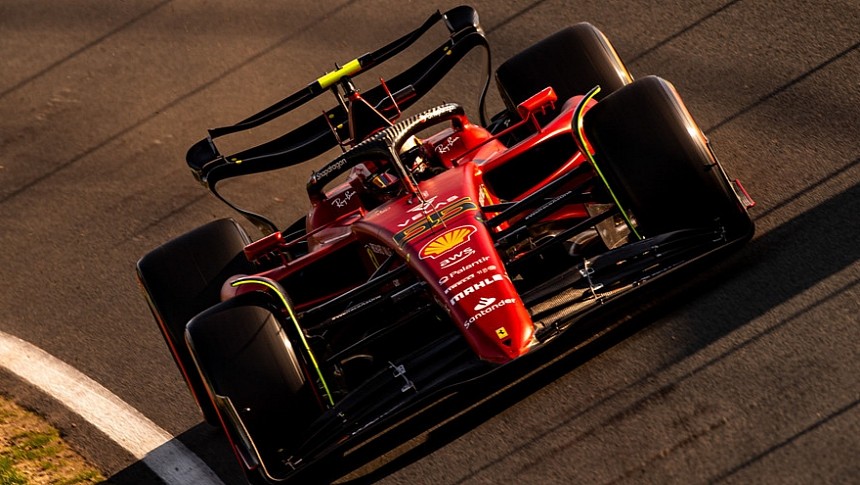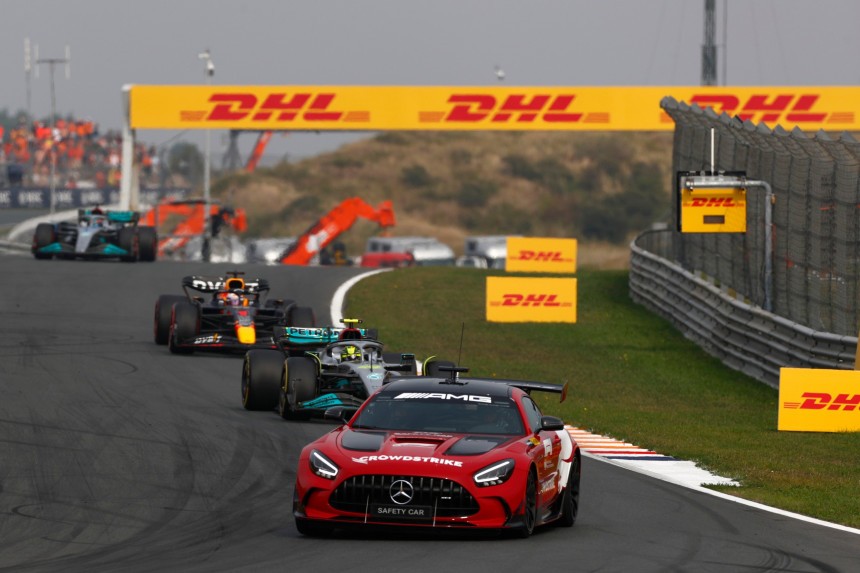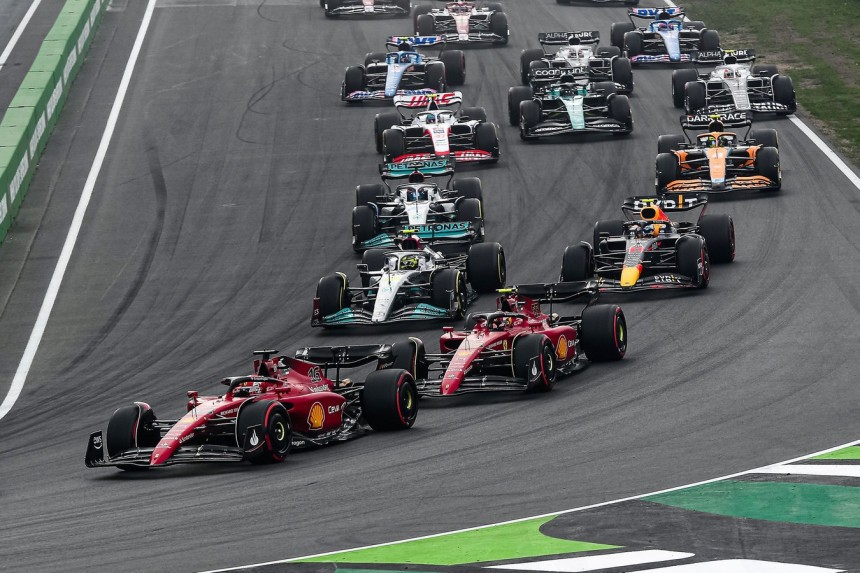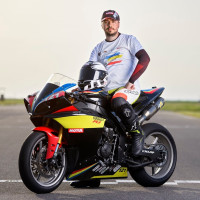The summer break is almost over, as we get ready for the 2023 F1 season to resume. Unlike what we expected, things have been quiet throughout the past few weeks. Of course, the rumor mill hasn't stopped for a second, but we'll likely have to wait a few more months before hearing of any significant changes in the championship.
The Netherlands will host Round 14 of the 2023 season, the last but final one on the European calendar. Zandvoort has been home to the Dutch Grand Prix for more than half a century, so it's undoubtedly one of the most iconic racetracks in the World Circuit. Even though it seems that Max Verstappen will score another title this year, the fight rages on for second and third in the championship, both for drivers and teams.
The first official F1 World Championship Dutch Grand Prix happened in 1952, and at that time, Alberto Ascari won the race for Ferrari. He delivered a repeat performance the following year, with Fangio scoring a victory for Mercedes in 1955. Drivers didn't return to Zandvoort in 1954, and the same happened in 1956 and 1957 for financial reasons.
The Dutch Grand Prix wasn't featured on the 1973 calendar, but the most extensive hiatus was between 1986 and 2020. Before we look at how things unfolded in the Netherlands in 2021 and 2022, let's look at what happened in the second part of the 20th century. Jim Clark displayed a phenomenal pace in the '60s, winning four of the ten Dutch GPs of the decade. That makes him the event's most successful driver and an essential figure in F1 history. He won two World Championships before sadly passing away in 1968 due to a racing accident in Germany.
To give you some perspective of how significant his Dutch GP achievements were, only two other drivers came close, with three victories each. One was Jackie Stewart, and the other one was Niki Lauda. The list of pilots with two wins each is slightly longer, with five names: Alberto Ascari, Jack Brabham, James Hunt, Alain Prost, and Max Verstappen. Speaking of legendary drivers to have taken top honors at Zandvoort, we can't forget Sir Stirling Moss's victory in 1958, Jacky Ickx's success in 1971, Mario Andretti's 1978 stint, and Nelson Piquet's 1980 performance.
What about constructors' results, though? Believe it or not, Ferrari still holds the record for most victories in Zandvoort, having won eight GPs there thanks to Ascari, von Trips, Ickx, Lauda, Pironi, and Arnoux. Considering current affairs, it's wild to think that the Italian Squad has held this record for 40 years. Lotus sits second on the list with six wins, while Mclaren drivers have scored three thus far.
And it's worth noting that Red Bull Racing will need at least six more successful races at Zandvoort to match Ferrari's performance in The Netherlands. Another interesting statistic is that the leading engine manufacturer for the Dutch Grand Prix is Ford, with ten victories. That means Scuderia Ferrari still has three more races ahead to try and defeat that record, although the Tifosi are pretty hopeless now. With Ford coming back to the sport in 2026, it will be interesting to see how the championship dynamics will change at that point.
Looking back at the previous two Dutch GPs, both went on at the beginning of September 2021 and 2022, respectively. And Max Verstappen scored a perfect victory twice in a row. He took P1 in qualifying and won the race, despite all the pressure from behind. In 2021, he had to deal with Lewis Hamilton and Valtteri Bottas, who qualified P2 and P3 and finished the main event in the same order.
The British driver was almost 21 seconds behind Max back then, while the Finn came in some 30 seconds later. Surprisingly, Pierre Gasly came in fourth, while Ferrari's ace drivers were fifth and seventh overall. Analyzing the 2022 Dutch Grand Prix, Leclerc, and Sainz were closest to the Flying Dutchman in qualifying. But things were slightly different for the race as George Russell got up from P6 to P2. He was only four seconds behind Max Verstappen, while Leclerc had to settle for P3 about six more seconds down the road.
Round 14 for 2023 will be more relaxed for drivers, with no Sprint race scheduled this time. The schedule will go as usual, with two Free Practice sessions on Friday and a third on Saturday before qualifying. Lewis Hamilton still holds the lap record since 2021, when he went around the 4.259 layout in 1:11.097. Given his series of F1 records, it must be tough for him to be without a victory for so long. If he plans to retire by the end of this season, winning the Dutch Grand Prix could be his final hoorah in the sport. But we'll report back on the action as soon as it all unfolds.
The first official F1 World Championship Dutch Grand Prix happened in 1952, and at that time, Alberto Ascari won the race for Ferrari. He delivered a repeat performance the following year, with Fangio scoring a victory for Mercedes in 1955. Drivers didn't return to Zandvoort in 1954, and the same happened in 1956 and 1957 for financial reasons.
The Dutch Grand Prix wasn't featured on the 1973 calendar, but the most extensive hiatus was between 1986 and 2020. Before we look at how things unfolded in the Netherlands in 2021 and 2022, let's look at what happened in the second part of the 20th century. Jim Clark displayed a phenomenal pace in the '60s, winning four of the ten Dutch GPs of the decade. That makes him the event's most successful driver and an essential figure in F1 history. He won two World Championships before sadly passing away in 1968 due to a racing accident in Germany.
What about constructors' results, though? Believe it or not, Ferrari still holds the record for most victories in Zandvoort, having won eight GPs there thanks to Ascari, von Trips, Ickx, Lauda, Pironi, and Arnoux. Considering current affairs, it's wild to think that the Italian Squad has held this record for 40 years. Lotus sits second on the list with six wins, while Mclaren drivers have scored three thus far.
And it's worth noting that Red Bull Racing will need at least six more successful races at Zandvoort to match Ferrari's performance in The Netherlands. Another interesting statistic is that the leading engine manufacturer for the Dutch Grand Prix is Ford, with ten victories. That means Scuderia Ferrari still has three more races ahead to try and defeat that record, although the Tifosi are pretty hopeless now. With Ford coming back to the sport in 2026, it will be interesting to see how the championship dynamics will change at that point.
The British driver was almost 21 seconds behind Max back then, while the Finn came in some 30 seconds later. Surprisingly, Pierre Gasly came in fourth, while Ferrari's ace drivers were fifth and seventh overall. Analyzing the 2022 Dutch Grand Prix, Leclerc, and Sainz were closest to the Flying Dutchman in qualifying. But things were slightly different for the race as George Russell got up from P6 to P2. He was only four seconds behind Max Verstappen, while Leclerc had to settle for P3 about six more seconds down the road.
Round 14 for 2023 will be more relaxed for drivers, with no Sprint race scheduled this time. The schedule will go as usual, with two Free Practice sessions on Friday and a third on Saturday before qualifying. Lewis Hamilton still holds the lap record since 2021, when he went around the 4.259 layout in 1:11.097. Given his series of F1 records, it must be tough for him to be without a victory for so long. If he plans to retire by the end of this season, winning the Dutch Grand Prix could be his final hoorah in the sport. But we'll report back on the action as soon as it all unfolds.


























